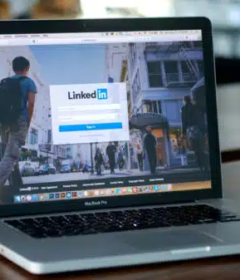How to make a big impact with a small influencer marketing budget

So you want to try influencer marketing, but you aren’t ready to allocate a big budget. Nine suggestions for ways to make a mark without breaking the bank.
Influencer marketing is so hot right now. I’ve spoken to several brands that have shared an interest in testing out influencer marketing, but they’re hesitant because they have a small budget or aren’t ready to go all-in for a strong campaign.
If you are just getting started with influencer marketing, here are a few ways you can keep your costs low while still creating a big impact. Completing a campaign on a small budget will help you dip your toe in to learn what works and what doesn’t before moving on to make a larger investment.
Start with your fans
When we at Seasoned Influence surveyed 100 micro-influencers, affinity to the brand was ranked as having the highest impact on the rates they charge. To find those people with an affinity for your brand, take a look at your followers to see if there are any micro-influencers.
Reach out to them and ask if they are interested in working with you or receiving some product in exchange for a post. As fans, they will likely be thrilled to work with you, and, while this does not mean the influencer won’t expect to be paid, they are more likely to work with you at a reduced price.
Working with these influencers can organically bring you more of the same. We find that when we do a campaign with one micro-influencer, others are likely to reach out and express interest in collaborating.
If you are not well known yet and don’t have any fans, create them. Send micro-influencers products to get them acquainted with you. Consider ways you can highlight them. You could do a series of interviews or include influencers in a roundup on your site to start that relationship.
Find the perfect fit
After brand affinity, the second most influential aspect of a campaign affecting influencers’ rates was how well the campaign matched the influencer’s expertise. When looking for influencers, pay close attention to the content they create. Find people who have posted about similar products and match your target customer.
The more granular you go, the better. For example, Clorox wouldn’t want to just target “Moms.” Instead, they might try to find influencers with more than two children who have posted DIY tips for cleaning in the past that their users engaged with.
Combine affiliate marketing with influencer marketing
Be creative in how you compensate bloggers. If you can provide influencers with a unique affiliate offer, it allows you more room to negotiate a lower upfront rate, because they can earn additional income from actual conversions their content generates.
This could even end up costing you more in the long run, but it takes away the risk of paying an influencer without getting the results you were hoping for. They are now incentivized to produce the highest-performing content, and doing well increases the likelihood they will share additional content in the future.
Focus on the engagement
We’ve all heard a lot about fake followers and fake engagement on influencers’ content. When you are evaluating influencers all day, fake engagement sticks out like a sore thumb. The strongest indicator of an engaged, trusting audience is in the comments. Look at the influencer’s social channels to see if readers are asking questions, leaving insightful comments or tagging other people to make sure they see their content. Do not base an influencer’s value on the numbers of followers they have alone.
I would rather work with an influencer with 20,000 followers and a 6 percent engagement rate than someone with 100,000 followers and a 2 percent engagement rate. The influencer with the larger following will still have more reach and engagement, but the influencer with the smaller audience will have a more intimate relationship with their following (i.e., more influence over them) and will charge a fraction of the price.
One way to ensure you get strong engagement for your sponsored content is by paying based on engagement. We are already seeing some influencer agencies and networks paying based on engagement, and, while influencers may be skeptical of this at first, I expect it to become a norm in the near future.
Amplify content with paid social
Sure, it costs money to boost content shared by influencers, but that investment goes a long way. Paying a blogger to boost their post to a precise demographic will ensure it is seen by the right people. Even just $25 toward a boosted post will get it in front of thousands of additional eyes. You can make room for this in your budget by cutting down on the number of influencers you pay and boosting the posts of the ones you work with.
Gather data for retargeting
The reason influencer marketing is so valuable is that you are reaching an engaged and trusting audience. Once their audience has seen your product once, retarget them again to bring them back. They’ll be more likely to buy after encountering your band multiple times.
You can put a Facebook Pixel on your site and have the influencers link to a specific page. You can then retarget the audience of people who visited that page on Facebook. You can take it a step further and target a lookalike audience, meaning that Facebook will serve the ad to similar people.
If influencers are sending traffic to their own site, you can use a PixelMe link to create a shortened URL that links to the influencer’s content, but, when clicked, adds the user to your audience for targeting.
Partner with another brand
A reliable way to make your budget go farther is to have another brand contribute some of the cost. If you are looking to promote a sports drink to millennials, you may try to team up with an athletic clothing brand that is targeting the same demographic.
I recently noticed Hershey teaming up with Kraft to promote chocolate, graham crackers and marshmallows to make s’mores. Not only can you split the cost, but influencers will be more likely to negotiate if you ask them for more deliverables — a volume discount, if you will. Besides mentioning all of the products being promoted, make sure they also tell their audience about retail locations where the products can be found. A retailer that carries your products might make a good partner for this kind of team effort as well.
Take from your content creation budget
One of the benefits to influencer marketing is the great content that is created. Why not repurpose that content instead of paying for more? Instead of having a typical photo shoot, find influencers with a style you like and give them a detailed creative brief so they know what you are looking for. Not only will you have content you can use, but it will be amplified to the influencer’s market. Make sure you specify how you will be using the images in your contract with the influencer. Otherwise, don’t count on using them everywhere.
A word on gifting or free products
Your first inclination as you wade into influencer marketing might be to send influencers free product and not pay them. While this can work if you have a product of decent value and they are in need, it can be a challenge to get the coverage you are looking for without paying influencers something.
I would start by emailing a few micro-influencers with an offer of your product in return for a post and see what the response is. You may need to create a more compelling offer. Even if they agree, since you are not paying the influencers, they are not obligated to do anything. They may not post, or if they do, they won’t be likely to make the adjustments you could request if they were under contract. In any case, it does not hurt to reach out to the influencers and ask if they will post in exchange for product. If they decline, you can then negotiate a rate.
When you do send out your products to influencers, make sure you send something that will cut through the gifting clutter most influencers receive today. Remember you aren’t the only brand sending them a gift, and the more personal and attentive you can be, the more likely an influencer will want to share their unique gift.
I have seen influencers with millions of followers share about products they received for free because they were legitimately thrilled. Some extreme examples of this are when Cardi B shared a Big Mac-shaped package with baby clothes inside to her millions of followers or when Jeffree Star told his millions of fans about a package he received of Taco Bell swag in a box shaped like Taco Bell Fire Sauce. Think about what fun swag and creative items you can add to make your package stand out and feel like a special gift from a close friend as opposed to blending in with their Amazon order.
I understand the apprehension about investing a ton of money in influencer marketing. As with any new channel, start small and see what works and what doesn’t. Influencer marketing can be done in many ways, and there are tons of variables you can experiment with. Find out what works for your brands and then go all-in once you find the sweet spot for you.
Opinions expressed in this article are those of the guest author and not necessarily Marketing Land. Staff authors are listed here.


